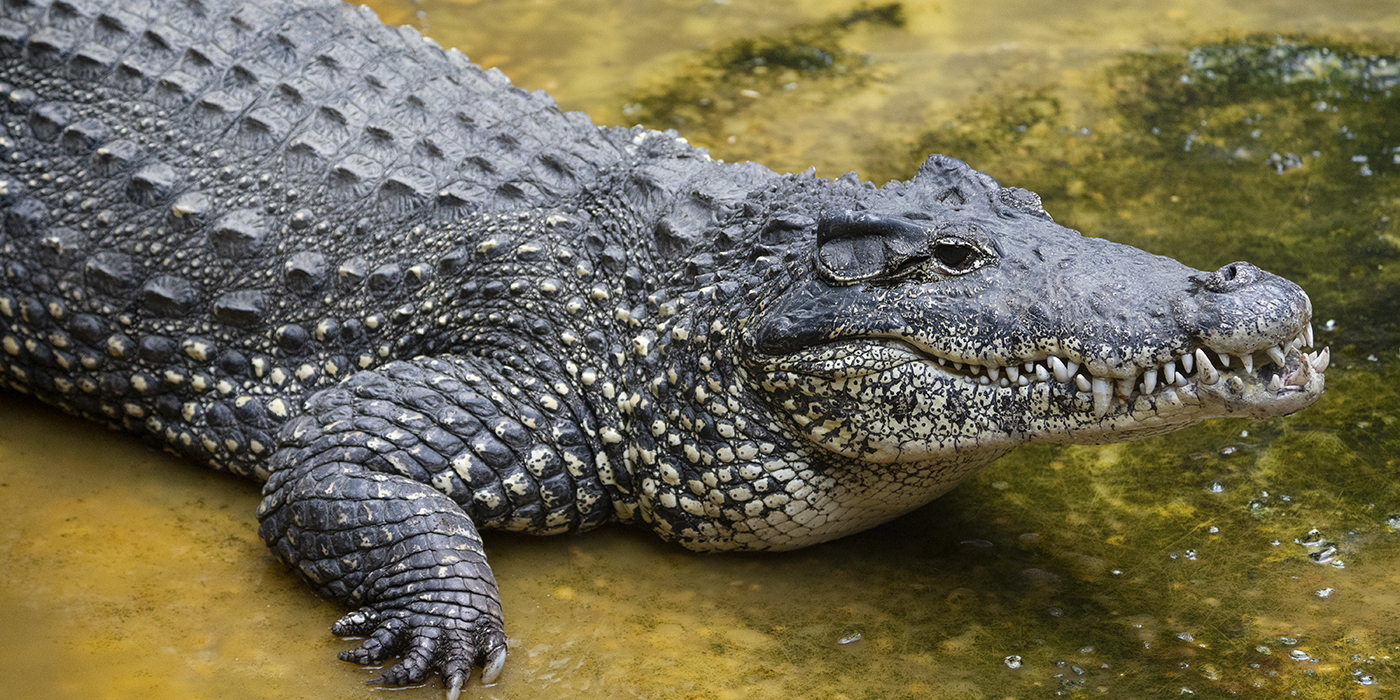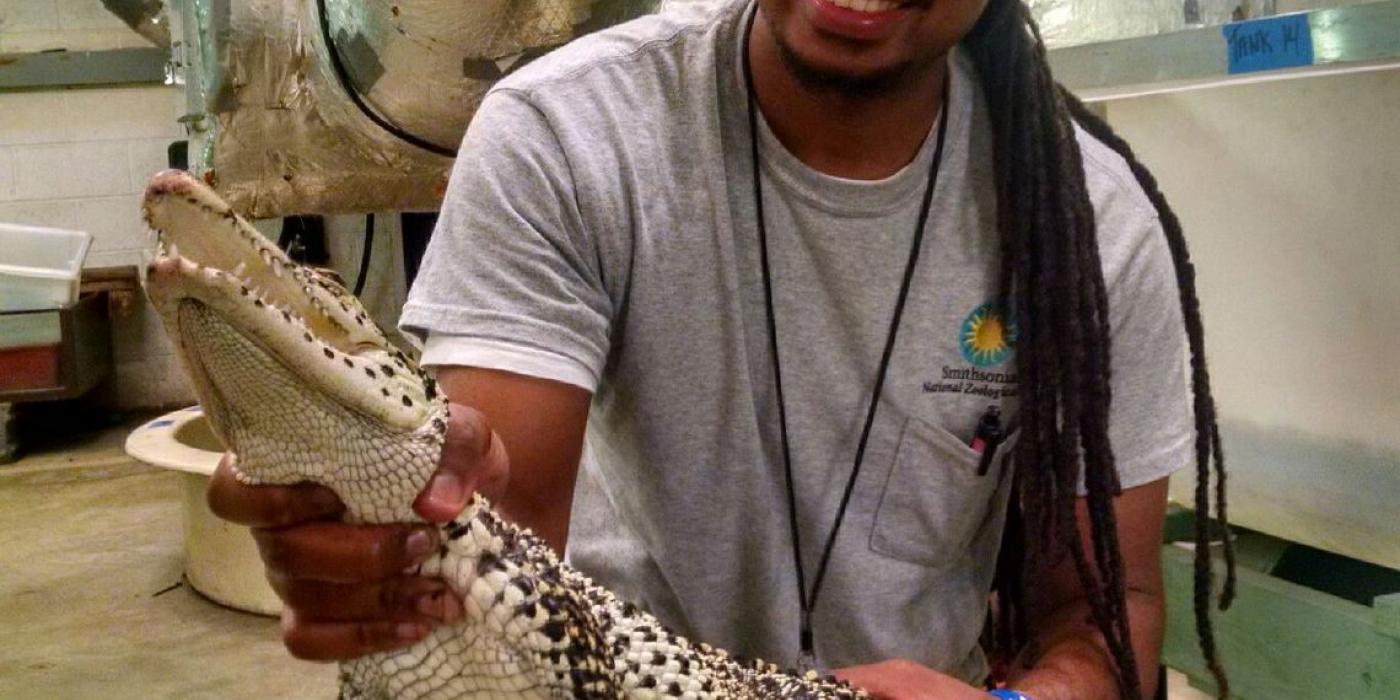The Croc and Gator Blog Apr 18, 2016
Breeding season for our Cuban crocodiles ended in March, but staff continue to train the crocodiles to shift off exhibit. The hope is that when a keeper calls aloud for the crocs to shift, all of them will walk to the holding area in the back of their exhibit. Once they are in the holding, the doors are closed and a keeper whistles, signaling that they've done what we've asked, and then feeds the crocodiles.
This is an important behavior for the crocodiles to learn for several reasons. First, these crocodiles are extremely aggressive, so we never enter the enclosure with them. We will only enter the exhibit if the crocodiles are in the holding area. When they are off exhibit, we clean the enclosure and ensure that everything is functioning correctly. We also can collect samples (like fecal samples) for research purposes. And lastly, we collect any eggs after nesting season. This time of year it's important for us to maintain and strengthen the shifting behavior because it is difficult to get our females off their nests after they lay eggs. Female crocodilians fiercely guard their nests. Each year we shift the crocodiles off exhibit to collect the eggs, though the eggs are not always fertile. If we can collect the eggs then we can also collect data on them.
Breeding season can also bring out specific behaviors with our female crocs, especially from Dorothy, our 58-year-old Cuban crocodile. She lives at our crocodile exhibit with another female, Blanche, and a male, Jefe. Dorothy is the larger female in her enclosure and asserts her dominance over Blanch. In the wild older crocodiles are generally larger, and they will usually breed sooner in the season and more often than younger and smaller females. And we see that with our crocs too. Dorothy starts to court and breed with Jefe earlier in the year than Blanche and Dorothy has been seen trying to break up Jefe and Blanche when they are breeding.
Related Species:



